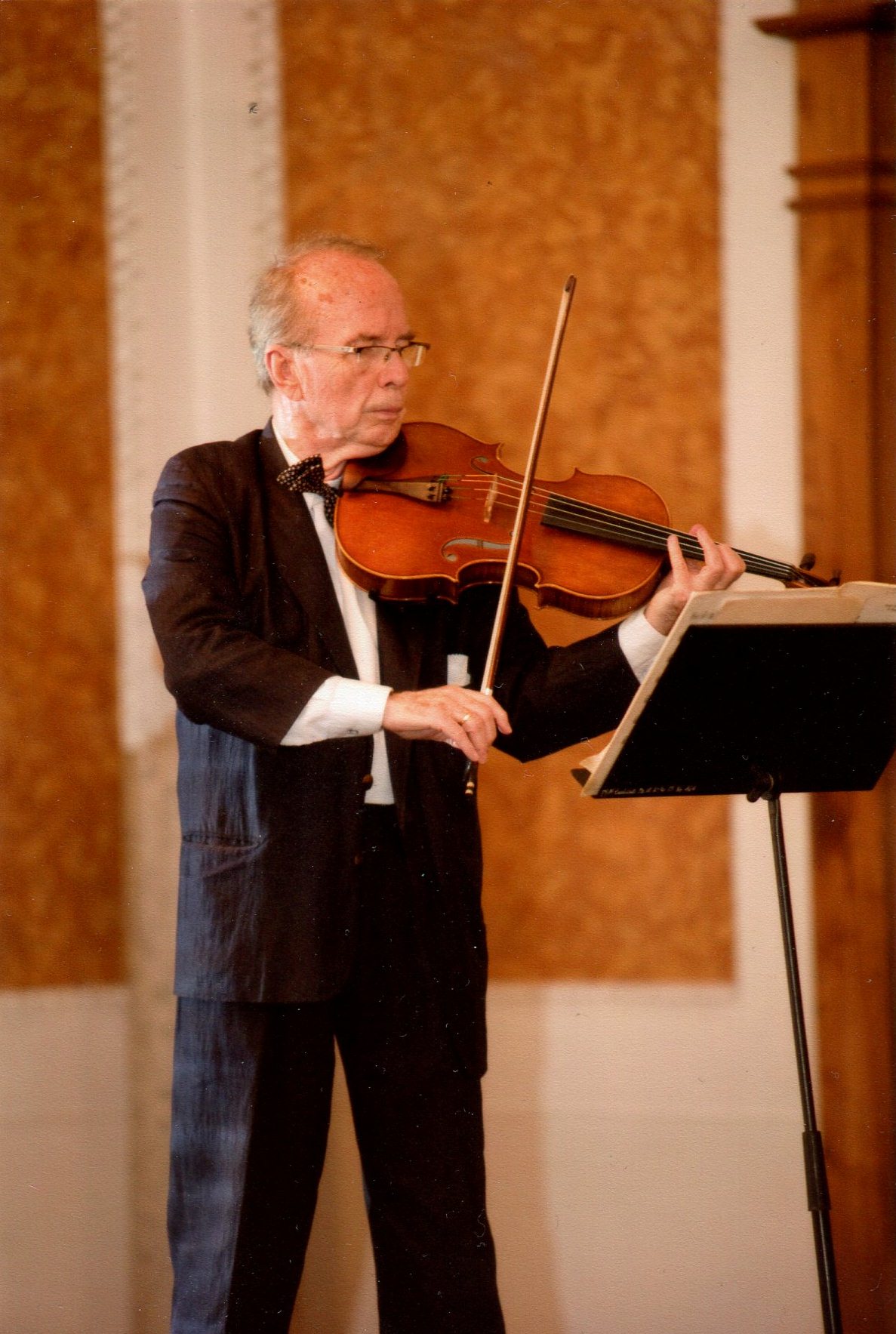Stefan Kamasa

Phot. Stefan Kamasa in Łańcut (2013).
Stefan Kamasa is one most outstanding viola
players of his generation. “Without a doubt, he is a successor to the famous
Primrose… with the excellence of his technique, quality and volume of sound,
and profound emotionality of delivery,” the French Avignon-based magazine Vauclose writes about the artist. “A
powerful and singular revelation of the Wigmore Hall concert was the discovery
of Stefan Kamasa’s alto, his excellent musicality complete with rich sound and
excellence of technique…” in the words of an English critic from London’s Daily Telegraph.
Aged nine, he began learning the violin, but completed music studies as viola player in Prof. Jan Rakowski’s class at the Higher School of Music in Poznań, where he was awarded diploma with distinction. He took post-graduate studies with Prof. Tadeusz Wroński in Warsaw, and – holder of a scholarship from the Ministry of Arts and Culture – with Pierre Pasquier in Paris.
The artist is the first prize winner of the 1957 edition of the Competition in Warsaw. Stefan Kamasa’s spectacular 1954 solo debut in Bela Bartók’s Viola Concerto with Warsaw Philharmonic Orchestra conducted by Andrzej Panufnik consolidated his unique position in the musical world. Since then, he has performed in over 30 countries of Europe, both Americas and Asia. He has played at renowned festivals in Salzburg, Berlin, Moscow, Prague, Zurich, Versailles, Baden-Baden, La Chaise Dieu, Alicante, Lourdes, Mexico and Warsaw.
With over 30 viola concertos in his repertoire, he is invited to collaborate with such ensembles, as Dresdner Philharmonie, London Royal Philharmonic, Royal Liverpool Philharmonic, Orchestre National de France, Orchestre Philharmonique de Paris, Mozarteum Salzburg, RSO and Staatskapelle Berlin, SDR Frankfurt, WDR Köln, Nürnberg, Gothenburg, Helsinki, and Thessaloniki Philharmonic Orchestras, Philharmonia Hungarica, NOSPR in Katowice and the National Philharmonic in Warsaw. He has given concerts with such illustrious conductors, as Stanisław Skrowaczewski, Jan Krenz, Witold Rowicki, Sir Charles Groves, Hiroyuki Iwaki, Jacek Kasprzyk, Eliahu Inbal, Moshe Atzmon, Manuel Rosenthal, Henryk Czyż, Jerzy Maksymiuk, Stanisław Wisłocki, Bohdan Wodiczko, Łukasz Borowicz, Jerzy Katlewicz, or Antoni Wit.
The artist has performed at such famous venues, as the Festival Hall and Wigmore Hall w London, Comédie Champs-Elysées and Gaveau in Paris, Alte Oper in Frankfurt, Herkules Saal in Munich, Tonhalle in Zurich, Philharmonic Hall in St. Petersburg, Tchaikovsky Hall in Moscow, Smetana Hall in Prague, Finlandia Hall in Helsinki, Teatro Amerika in Havana, Bellas Artes in Mexico City, or the Library of Congress in Washington.
Greatest Polish 20th-century composers, incl. Grażyna Bacewicz, Tadeusz Baird, Roman Palester or Krzysztof Penderecki, have written concertos for Stefan Kamasa, who was also their first performer.
As a recognised chamber musician, for 23 years he played with the legendary Warsaw Quintet (with Bronisław Gimpel and Władysław Szpilman), and subsequently with Polish Radio and Television Quartet (with Konstanty Andrzej Kulka, Roman Jabłoński and Jerzy Marchwiński). He has performed with such outstanding ensembles, as the Tchaikovsky Quartet from Moscow, Silesian String Quartet, Wilanów String Quartet, Camerata String Quartet, Varsovia Quartet, as well as such illustrious artists, as Jean Pierre Rampal, Marina Yashvili, Marielle Nordmann, Maureen Forrester, Sherban Lupu, Krzysztof Jakowicz, Jerzy Lefeld, Ivan Monigetti, Janusz Olejniczak, and son, Paweł Kamasa. Currently, he plays with Konstanty Andrzej Kulka, Krzysztof Bąkowski, Rafał Kwiatkowski and Krzysztof Jabłoński in the revived Warsaw Quintet.
The list of Stefan Kamasa’s prestigious awards includes the Diapason d’Or prize of French critics for the recording of Tadeusz Baird’s Concerto lugubre, the Orfeusz prize for the performance of Grażyna Bacewicz’ Viola Concerto at the Warsaw Autumn festival, the Polyhymnia’s Medal awarded at the Poznań Spring festival, and 1975 First Degree Prize of the Minister of Arts and Culture.
Chairman and member of juries at national and international competitions in Munich, Budapest, Pörtschach, Bordeaux, Evian, Essen, Markneukirchen, Mittenwald and Poznań, he has also given numerous master classes in Vienna, Leipzig, Stockholm, St. Petersburg, Düsseldorf, Gdańsk, Karlsruhe, Łańcut, Żagań and Zakopane. Professor at Fryderyk Chopin University of Music in Warsaw since 1958. Over the years, he has educated a few generations of recognised violists, who occupy prominent posts in excellent chamber music and symphony ensembles on all continents. He has also lectured in Cracow, Wrocław, Poznań, and in Tarbes, France.
Stefan Kamasa’s state-conferred distinctions include Gold Medal Gloria Artis for Outstanding Services to Polish Culture (2007), Gold Cross of Merit (1978), as well as Knight’s (1982) and Commander’s (2010) Crosses of the Order of Polonia Restituta.






